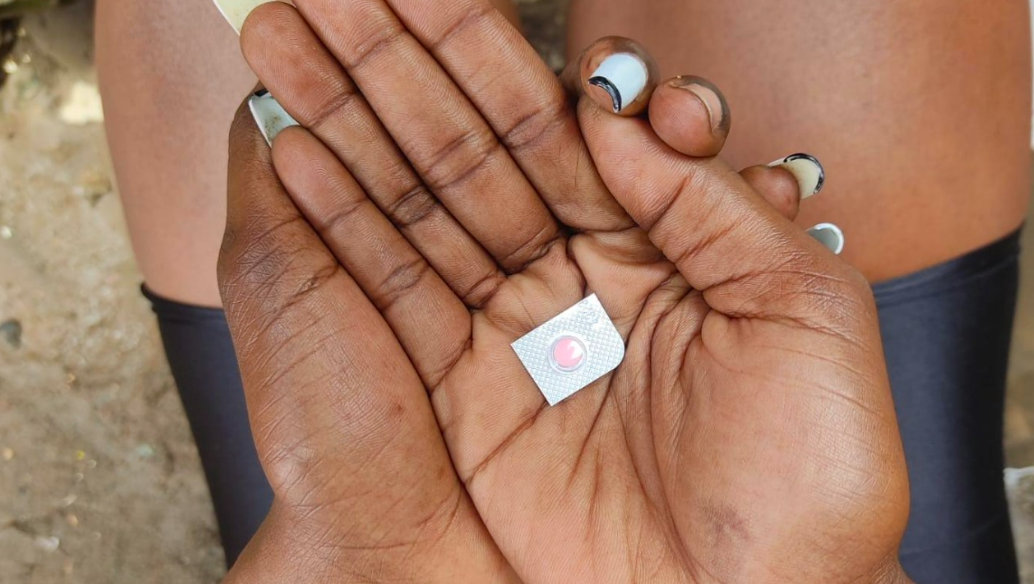

Jane Mugo lives in small single roomed mabati structure in the dark alleys of Kiamaiko slums in Nairobi with her husband, two children and two grandchildren.
The house has no water, no electricity and no
toilets. During the hot weather season, the family spends most of the time
outside because the mabati structure can barely withstand the harsh realities of
the heat.
And when it rains, like most houses built on the
banks of Nairobi River, they face the threat of having their homes swept away
by floods.
“I have lived here all my life and raised my
children here and now I am raising my two grandchildren because this is all I
can afford with my meagre earnings from washing clothes,” she says.
It is this abject poverty Mugo lives in that
forced her to take her daughter Faith Njeri to family planning when she was
only 16 years old.
With the help of Shine A Light, a community-based organisation, Njeri, who became sexually active at the age of 15, got implants.
“Just like many ghettos in Nairobi, girls in
Kiamaiko slums become sexually active at a very tender age. So after
consultations with her father, we decided to put Njeri on contraceptives,” she
says.
But out of fear of the myths and misconceptions
she heard from friends, Njeri removed the implants and unfortunately got
pregnant, sinking the family deeper into poverty.
“The child became an extra mouth to feed
and this made life more difficult,” Mugo says.
For the second time, accompanied by her mother, she would again get new implants, but would remove them secretly and get pregnant for the second time.
“I started losing weight and would bleed very
heavily. My friends told me it is the contraception I was on that was causing
this problems, so I removed it and unfortunately became pregnant again,” Njeri
says.
“My father became angry this time and warned me that if I got pregnant again, I would have to leave his house and with proper advice from medics, I had new implants.”
But with further consultations with medics at
Shine A Light, she was given a different form of implant.
The CBO not only helps young mothers access family planning but also teaches them how to take care of their children and life skills.
The 2022-32 National Reproductive Health Policy generally gives access to adolescents but suggests parental consent for minors.
Mugo says the decision to put her daughter on
family planning was not an easy one, but one that she had to make considering
her economic situation.
“I faced ridicule from fellow parents, who said
my move was encouraging my daughter to engage in prostitution, but I knew if I
had not done that, I would be raising more grandchildren right now,” she says.
Kenya continues to battle alarmingly high rates
of teenage pregnancy, despite a slight decline in reported cases.
According to the Ministry of Health’s Maternal
and Newborn Health Status Report released in June, 240,787 adolescents aged between 10 and 19 years presented with pregnancy at their first antenatal care visit last
year.
Although this marks a 4.3 per cent decrease from
the 251,510 cases in 2023, the figures remain troubling.
Health experts warn that this marginal drop does
little to mask the deep-rooted reproductive health challenges adolescents face,
ranging from stigma and misinformation to limited access to youth-friendly services,
particularly contraception.
A report by Marie Stopes International says last year alone it averted more than 528 unintended pregnancies, 1,500 maternal deaths and served more than 763,009 clients.
The organisation says the results are measured through
a scientific model that records the number of clients who visit their service
stations and the contraceptives issued.
Country director Walter Obita attributed the
organisation's milestones to strong partnerships with the Ministry of Health
and county governments.
He said the consistency has seen more Kenyans
embrace even more permanent methods of family planning such as bilateral tubal
ligation and vasectomy.
"In 2024 alone, we provided 2,493
vasectomies and tubal ligations. Demand for these services continues to grow
and we are proud to have hired healthcare providers who offer these
life-changing options in public facilities," he said.
The organisation has also partnered with 60
private clinics to further expand access to reproductive healthcare.
"By providing safe, respectful and
compassionate care, we help reduce the risk of complications from unsafe
abortions and uphold the dignity and health of women and girls," Obita
said.
He urged the government to increase domestic
funding for contraceptives and remove policy barriers that hinder adolescents
and young people from accessing services.
"Together, we look ahead to a future where
every Kenyan, regardless of they are or where they live, can access the
reproductive health services," Obita said.












